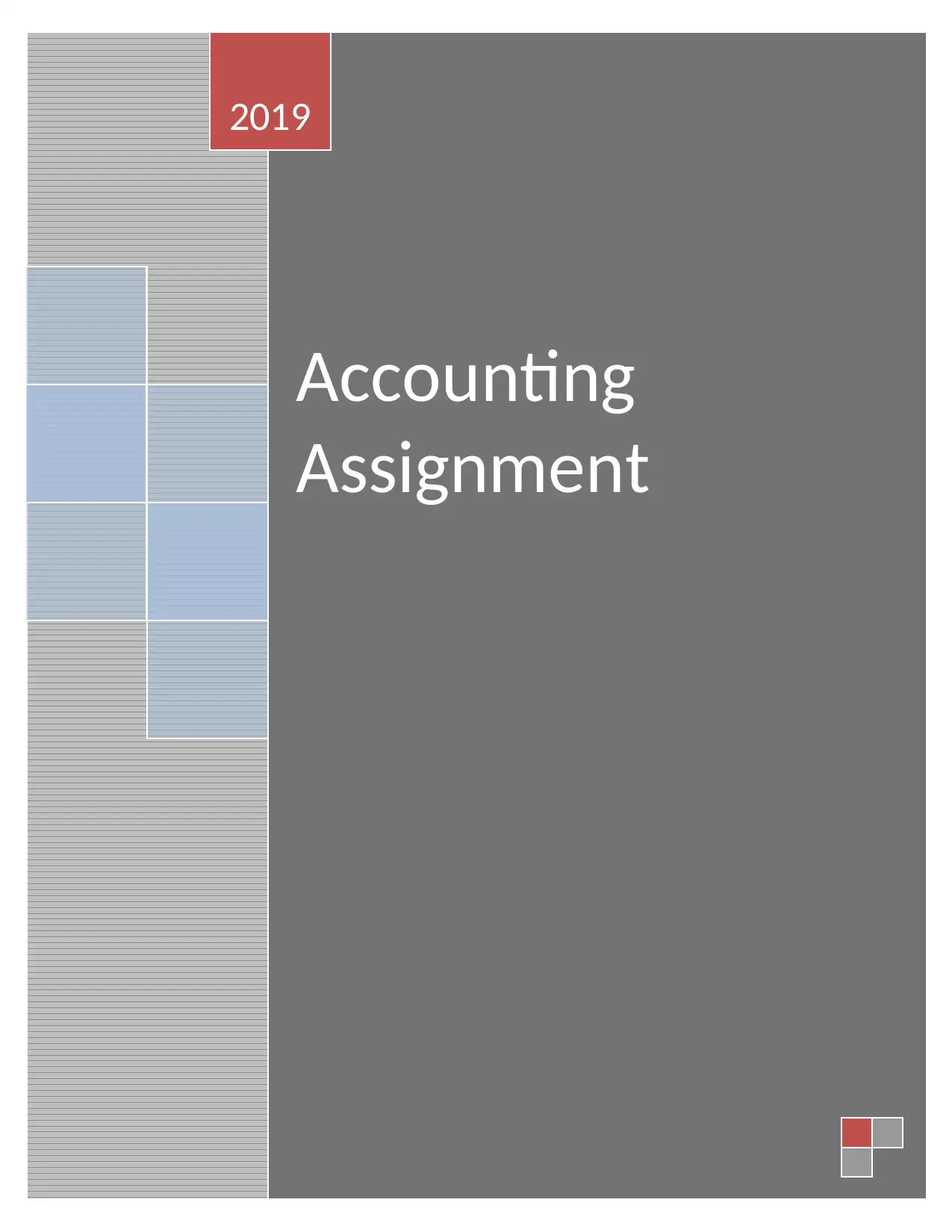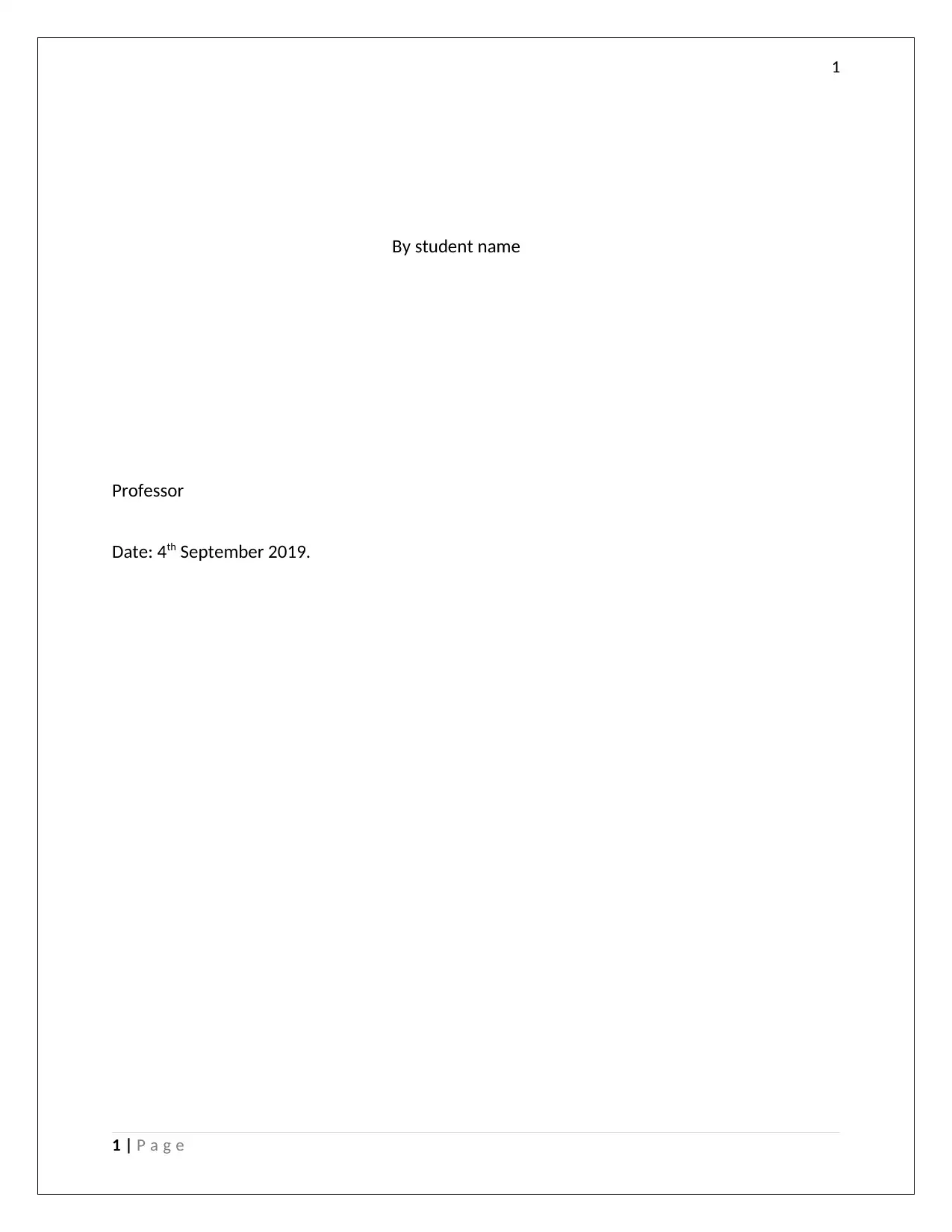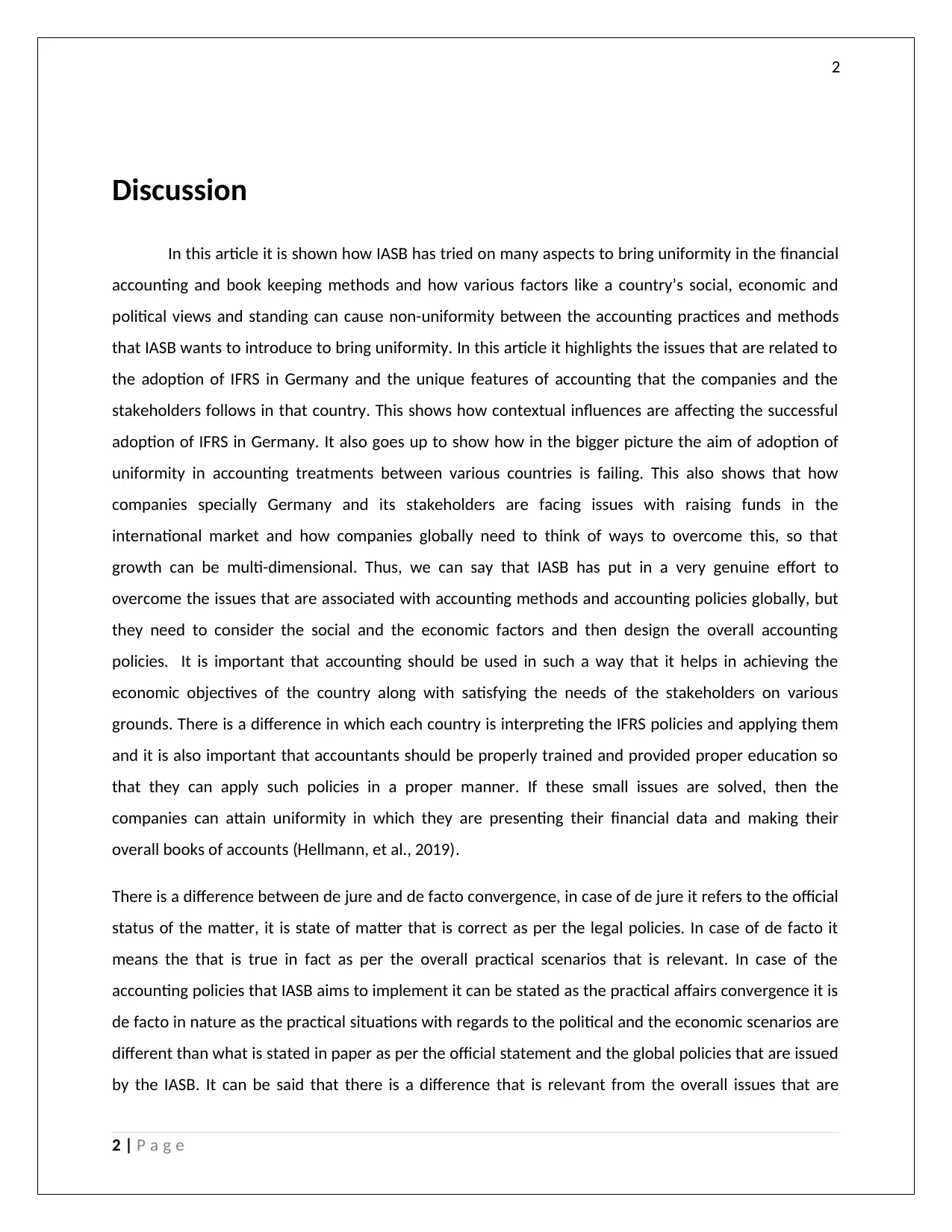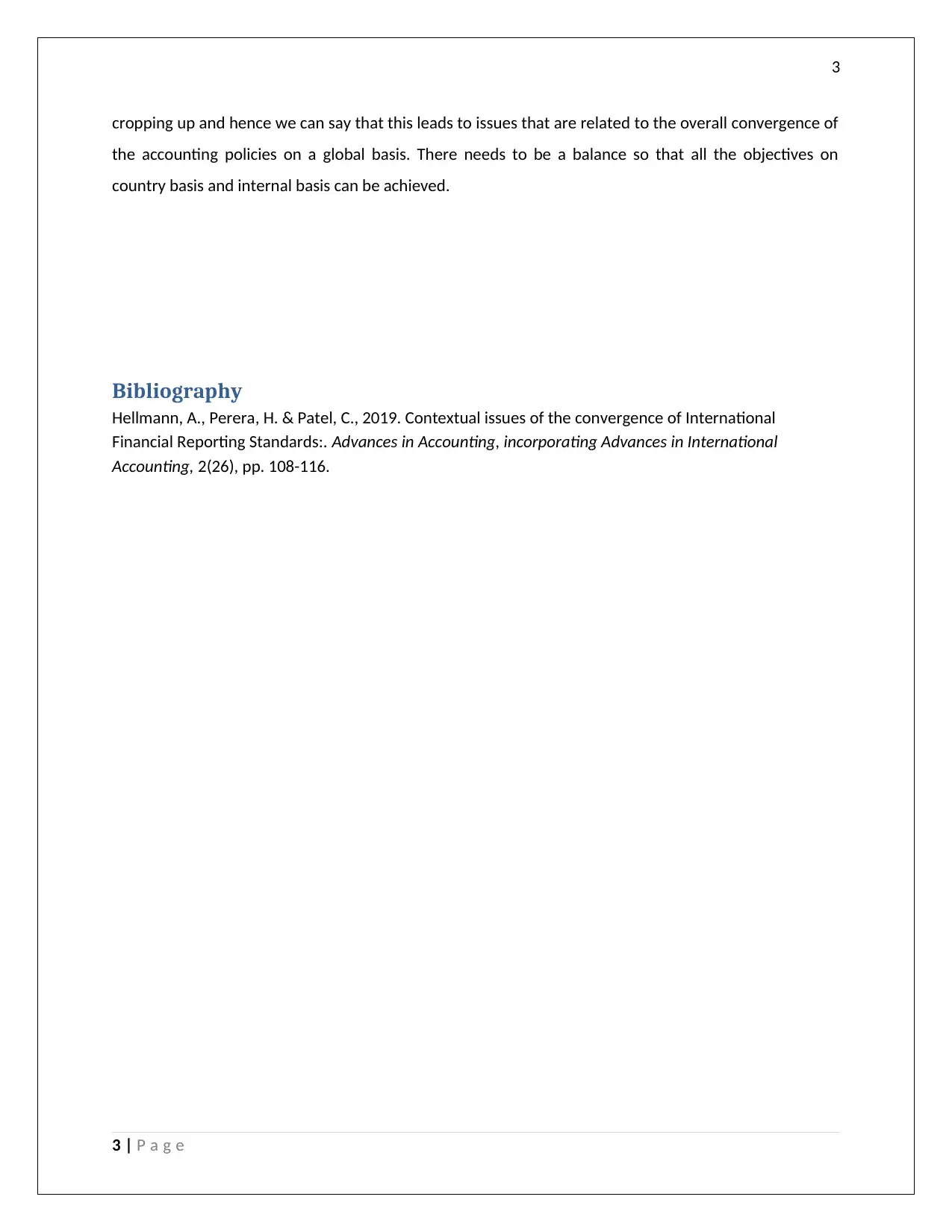Reflection on IFRS Adoption, IASB Objectives, and Accounting Practices
VerifiedAdded on 2022/12/14
|4
|605
|154
Report
AI Summary
This report reflects on the article by Hellmann, Perera, & Patel (2010), examining the contextual issues of International Financial Reporting Standards (IFRS) adoption, using Germany as a case study. The report discusses the IASB's objectives of achieving uniformity in financial accounting and bookkeeping methods. It highlights the challenges posed by differing social, economic, and political environments, leading to non-uniform accounting practices despite IASB's efforts. The report analyzes the differences between de jure and de facto convergence, emphasizing the practical challenges faced by companies, particularly in Germany, in adopting IFRS and accessing international markets. The report stresses the importance of considering contextual factors and providing proper training to accountants to ensure effective IFRS implementation, aiming for uniformity in financial data presentation. The report concludes by underscoring the need for a balanced approach to meet both country-specific and international objectives.
1 out of 4











![[object Object]](/_next/static/media/star-bottom.7253800d.svg)